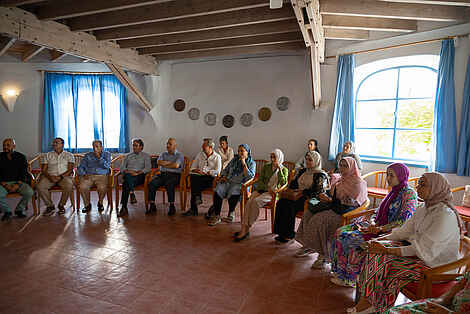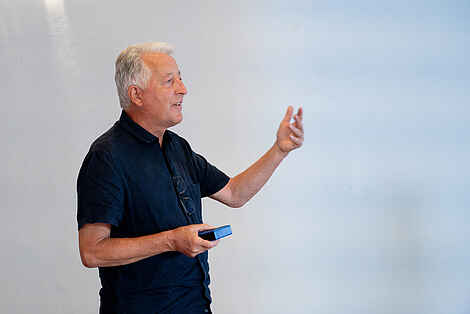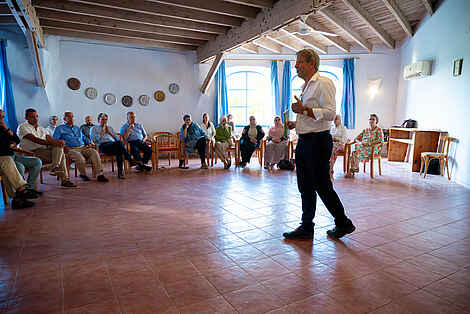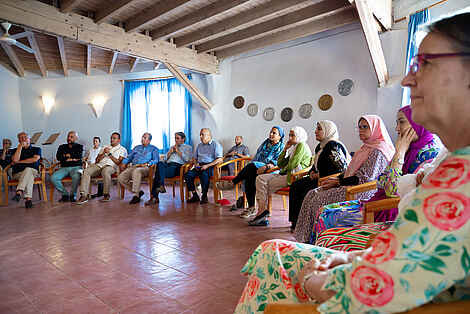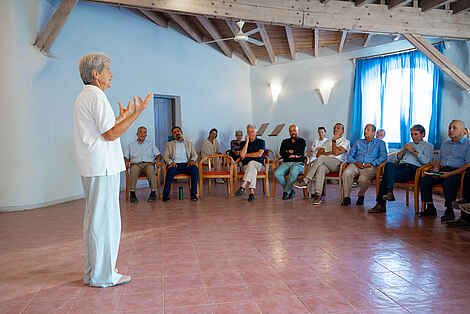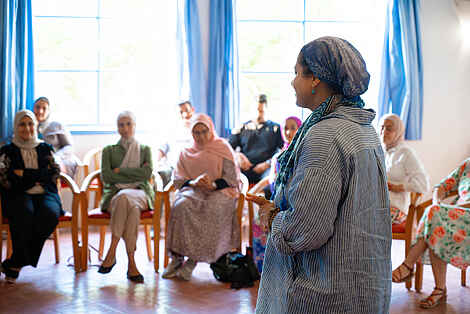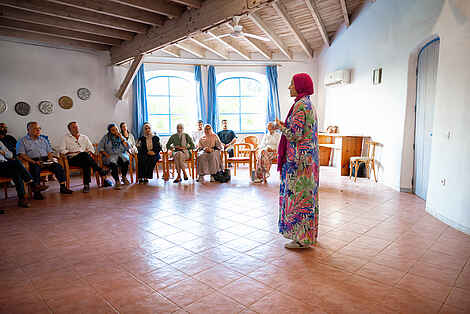Very soon it became clear that the students – mainly town kids without any connection to nature and agriculture – had to be brought to the farm for face-to-face encounters and a direct experience. Today, all six ten-day modules take place at the beginning of each semester on the Sekem main farm, where the classrooms and hotel facilities are also provided.
Biodynamic consultants and researchers from Europe such as Reto Ingold, Peter Kunz, Jasmin Peschke, Maja Kolar, Jean-Michel Florin and Ueli Hurter regularly teach according to the principle of being guided by other people, becoming aware and observing themselves and working as part of an organism, digesting what they have experienced and reflecting on it together, developing and exchanging new ideas and presenting their findings to an audience. This is a challenge not only for the students, who are mainly used to memorising abstract content, but also for the teachers and assistants, as they need to be reasonably well versed not only in theory but also in practice.
For example: sticking your hands in the soil or compost to smell if it is really in good quality, planting chamomile and harvesting it five months later, feeding cows, understanding their digestion and processing their milk into yoghurt and quark, cleaning and cutting vegetables for 600 lunches in the canteen, fill and sell just as many sandwiches for the school break, slaughter a cow, process the meat into köfte and fill the organs with the biodynamic preparation plants, think about your own diet – how many grams of grain does the chicken eat for my breakfast egg? –, calculate the profitability of chamomile production and its processing into tea bags and finally get an idea of the necessity of a surplus money flow from production, processing and marketing to the Sekem school, the culture and the health care centre. You need to be thoroughly familiar with all this complexe diversity in order to plan and manage a biodynamic farm organism or to be able to give really competent advice to the farmers.
From the outset, the aim was to implement all modules in such a way that they could be taught by local lecturers and assistants. This step has now been completed: after the external teachers had increasingly limited themselves to coaching in recent years, the six modules were handed over on 3 September 2024 in an official ceremony in Sekem to the management and staff of Heliopolis University Cairo, now over thirty people. The courses are currently attended by 70–90 students per semester, with one or two alumni working as assistants on each course. Experience shows that the students – after some initial irritation due to the unfamiliarity – quickly become very alert and enthusiastic about the major tasks to be solved in agriculture. Their skills are in high demand, as more than 1000 small farmers in Egypt currently want to convert to organic and biodynamic farming every month!
The great success of the Biodynamic modules prompted Heliopolis University to implement similar elements of practice in all other faculties. Companies are invited to participate in order to obtain well-qualified and highly motivated employees. Through hands-on experience and industry internships, students become future employees, which saves both time and costs for onboarding new employees.
